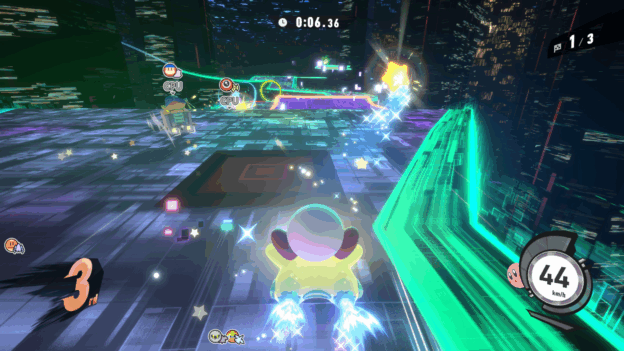Venba Review – Review – Nintendo World Report

A brief narrative experience about cooking for the love of it.
Venba is a heartfelt narrative game about an Indian family who moves to Canada and tries to make a life for themselves, despite cultural barriers and other challenges involved with immigrating to a new country. At its center is a simple cooking mini-game that functions like a puzzle; you need to figure out from a well-loved recipe book how to prepare certain Tamil dishes passed down by protagonist Venba’s mother. In spite of its powerful message and approachable presentation, its short length, lack of replay value, and an odd plot omission hold Venba back from a surefire recommendation.
Set in the 1980s and then onward, Venba portrays the struggles of an immigrant couple, Venba and her husband Paavalan, who have come to Canada but find it difficult to secure meaningful, permanent employment. Each of the game’s seven chapters takes place in a different year, which showcases the changes (having their son Kavin) and the similarities (Venba’s employment woes) in their lives. Players can make dialogue choices, but these don’t seem to impact the responses received. Other than that, it’s the cooking segments that offer Venba’s only gameplay, but fortunately they do offer neat little puzzles to solve.
It may not be clear right away after looking at the recipe what you need to do with the ingredients laid out before you. The order of operations is often a vital aspect of successfully preparing each dish. In the first scenario, you need to place a towel between layers of cooking plates to avoid the batter spilling everywhere, but at the same time you need to rotate the plates such that steam can rise from the bottom of the pot to the top, thus allowing each batter-filled plate to cook through. Later recipes add to the complexity somewhat, but there’s a hint option if you get stuck. Given how interesting it was to complete the recipes, I would have liked to see more cooking segments pop up throughout Venba’s 1 or 2-hour runtime.

The 2D watercolor-cartoon aesthetic works well for a game where its touching narrative is meant to shine through. There are moments where Venba genuinely tugs on the heartstrings, doubly so for anyone who has ever had to leave family behind to start a new life in an unfamiliar place. With a soundtrack reminiscent of Indian musicals, Venba does a great job of transporting you into the home (and the kitchen) of its main characters. I empathized with each family member in turn as they encountered their own trials and tribulations and especially as the parents tried to reconcile with their son growing older and more distant.
Venba reminds me of the Annapurna-published Florence in the way that it takes a familiar, contemporary experience and highlights the pivotal emotional moments that make it both memorable and uncomfortable. Where Florence’s brevity is a strength (in that it tells a fairly complete story), Venba on the other hand leaves questions begging to be answered. Its use of time skips allows us to see the family in a variety of life stages, but because we aren’t picking up right where the game left us, trying to figure out exactly what happened in the missing years can be frustrating. One particular (and I’d say important) plot detail is seemingly glossed over entirely; others are left to the audience’s imagination. In other cases, I’d think this was fine, but not with something that already feels like it’s over too soon.

Venba packs an emotional punch, but it also pulls its punches a little bit, too. There’s more to this narrative and this family that deserves to be included in the experience, and while the cooking segments definitely sing, I’m ultimately left feeling like I’ve been served an appetizer rather than a main course. It’s beautiful in its colorful but minimalistic presentation and has a fitting musical score. I’m just longing to spend more time in Venba’s charming kitchen and to be invited to share in more of the moments in her life.




